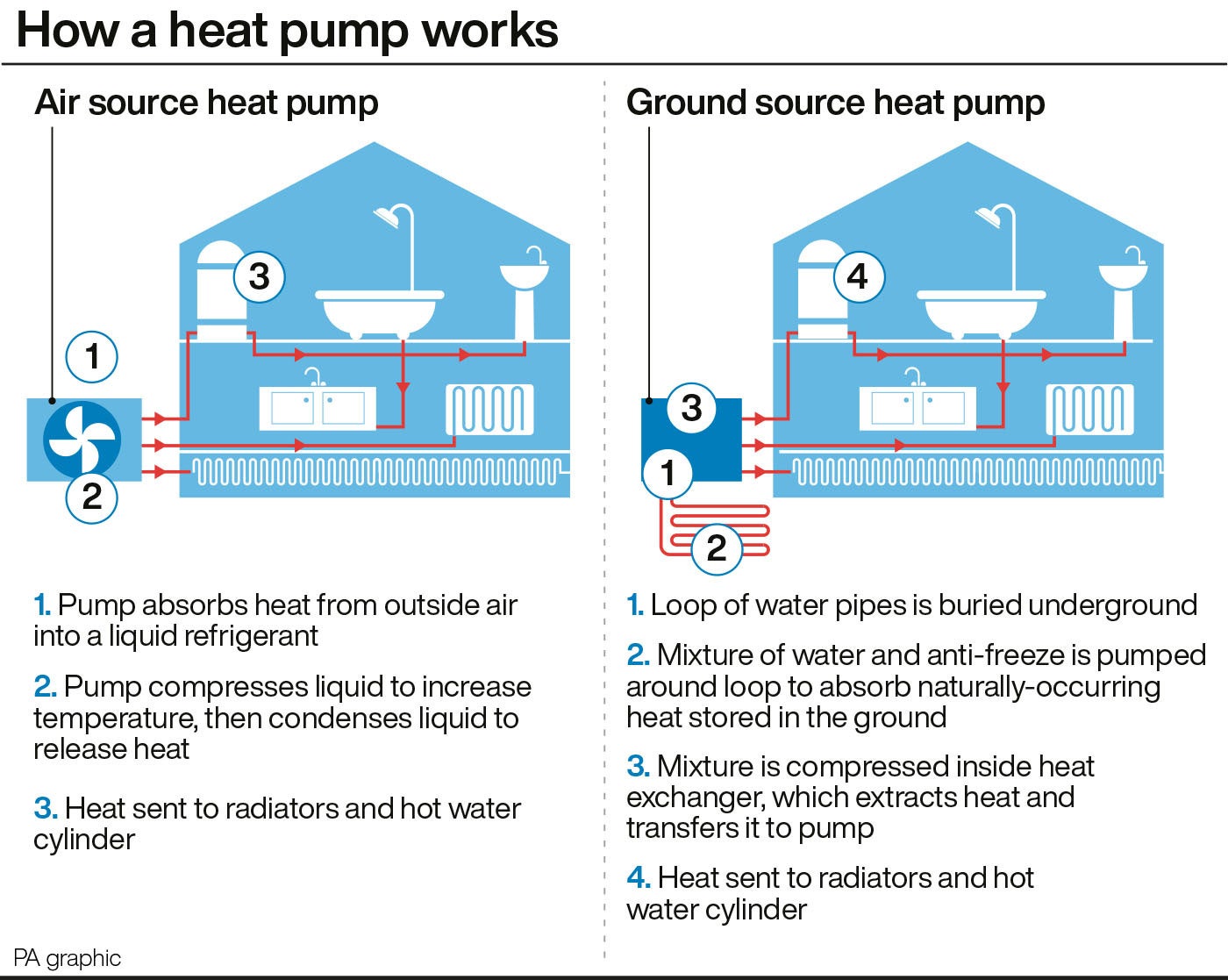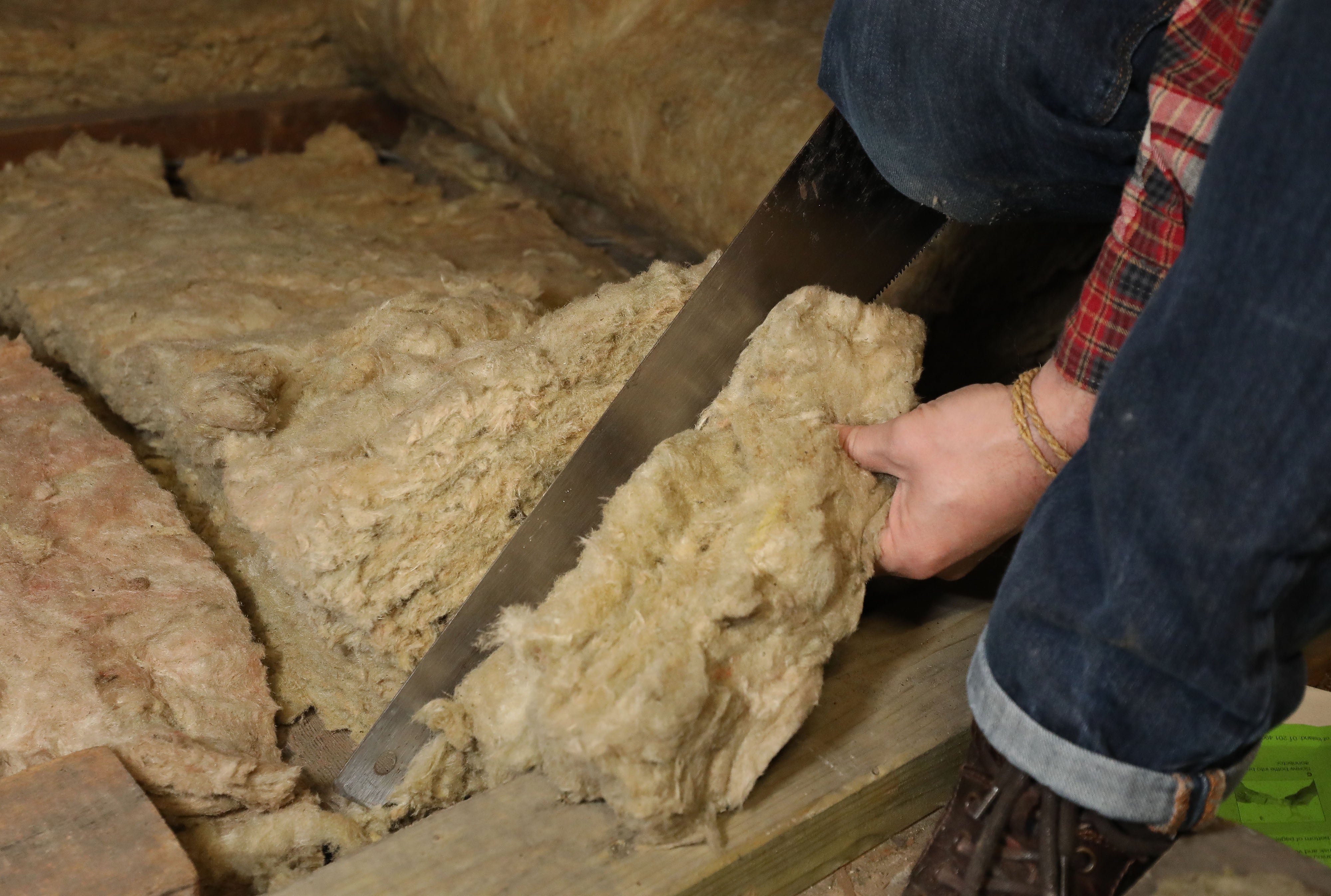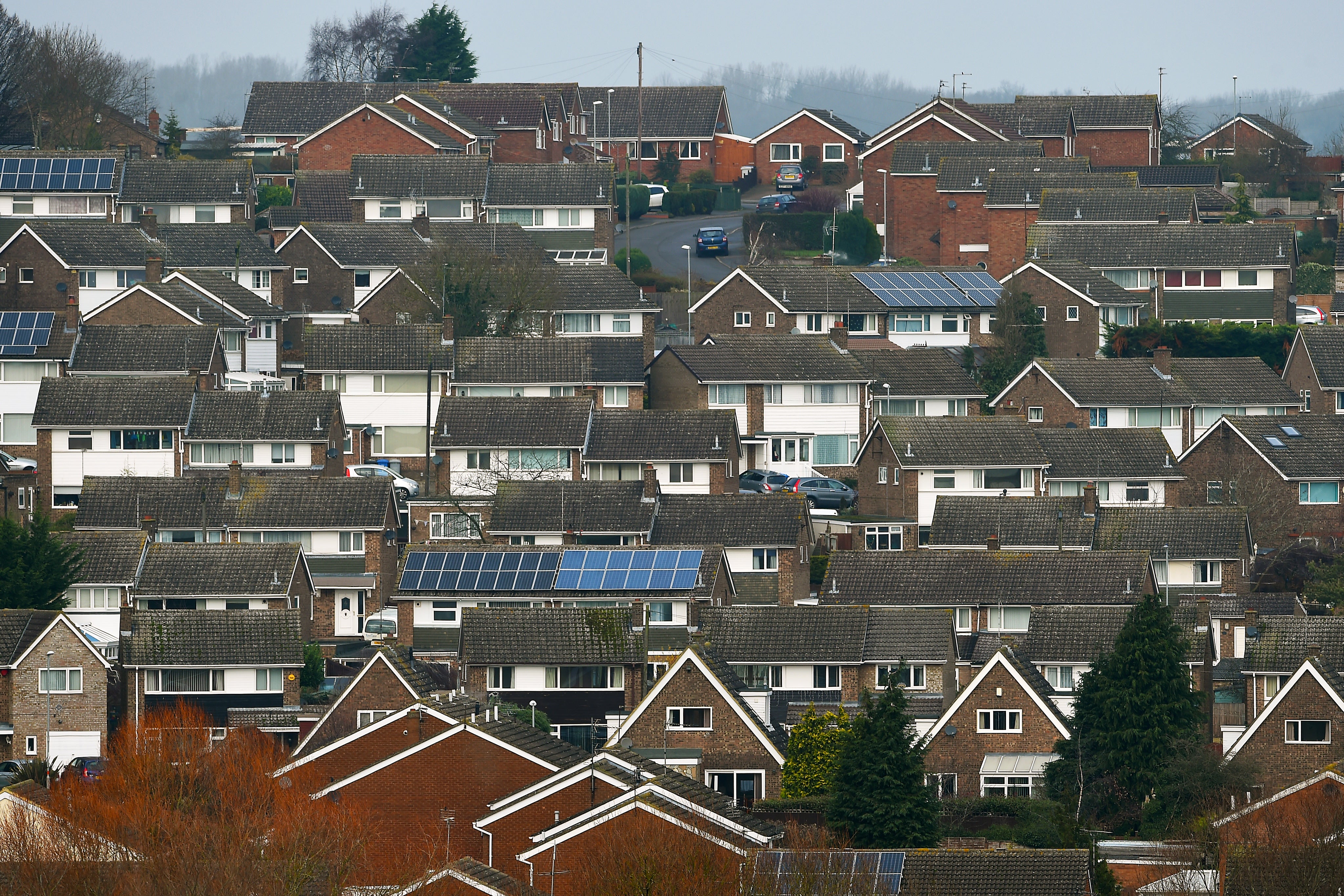What heat pumps mean for your home – and your wallet
A government grant worth £5,000 is now available to cover part of the cost of installing a gas boiler replacement
Your support helps us to tell the story
From reproductive rights to climate change to Big Tech, The Independent is on the ground when the story is developing. Whether it's investigating the financials of Elon Musk's pro-Trump PAC or producing our latest documentary, 'The A Word', which shines a light on the American women fighting for reproductive rights, we know how important it is to parse out the facts from the messaging.
At such a critical moment in US history, we need reporters on the ground. Your donation allows us to keep sending journalists to speak to both sides of the story.
The Independent is trusted by Americans across the entire political spectrum. And unlike many other quality news outlets, we choose not to lock Americans out of our reporting and analysis with paywalls. We believe quality journalism should be available to everyone, paid for by those who can afford it.
Your support makes all the difference.Households in England and Wales can now receive grants worth thousands of pounds to replace their boilers with new low carbon heat pumps.
Here are the answers to some key questions about the technology.
– What is a heat pump?
An air source heat pump looks like an air conditioning unit on the outside of buildings. It works a bit like a fridge in reverse, using electricity to extract energy from the outside air to provide heating for homes and hot water.
There are also heat pumps that draw energy from the ground or water.
Because they are extracting heat from the environment – which they can do even at low outside temperatures – they produce around three times the energy they use, making them much more efficient than a gas boiler.
British electricity is increasingly powered by low carbon sources such as wind, making heat pumps a clean alternative to burning gas while they also cut local air pollutants, such as nitrogen dioxide, that boilers emit.
– How much are they?
Installing a new air source heat pump costs more than £10,000 on average, with a ground source heat pump costing more than that.
The government grant introduced in March provides £5,000 for an air source heat pump and £6,000 for a ground source heat pump, for homes in England and Wales that are sufficiently insulated.
VAT has also been removed for installations of the clean tech, along with insulation to make homes cosier, which will further bring down the cost.
Energy company Octopus has confirmed that with the £5,000 grant, it will offer heat pumps at a similar price to gas boilers.

– So you need a well-insulated home to run one?
All heating technologies – including gas boilers – work more efficiently and save you money if your home is well insulated and improving insulation to save energy is a key part of cutting emissions from buildings.
A government study conducted this spring found that all homes in the UK, from Victorian mid-terraces to 1960s blocks of flats, are suitable for heat pumps.
Energy experts estimate that nearly a fifth of homes, some 4.8 million, are suitable for a heat pump today while another 30 per cent, or 8.4 million, need minimal changes such as loft and cavity wall insulation, which will also cut bills.

– Will I have to make other changes to my house to install a heat pump?
Because radiators on heat pumps operate at a lower temperature than with gas, you might need to swap a few of the oldest single panel radiators your home might have to ensure they are big enough to heat the room sufficiently.
They can normally be replaced with double or triple panelled radiators that fit in the same spot.
Underfloor heating works very well with heat pumps as it operates at a lower temperature than radiators so it will continue to work if you have it or, if you are doing a wider refurbishment, you could think about putting it in. It is not necessary to install it, however.
Currently, you need a water tank for heating up your hot water.

– How different are they to run?
The main difference is you do not get that immediate boost you can get with gas, when you feel cold and you fire up the boiler.
That is because a heat pump heats water in the radiators to a lower temperature than a gas boiler so it warms a house more slowly.
But with a heat pump, the system works out the most efficient way to keep the house to the temperature you want it and gets on with it.
You can programme changes such as being away for holidays and your return time, so the house will be warm for when you come back.
– Do you save money from running one?
It depends on gas and electricity prices. With the energy price hike that came in this April, the 84 per cent spike in the price of household gas pushed up the cost of running a gas boiler beyond the cost of running an electric heat pump, even though electricity prices were also climbing.
Experts estimated at the time that households that had switched from a gas boiler to a heat pump could shave £260 off their annual energy bills from April.
The price of household energy bills is now set to rise even further this winter when Ofgem revises its energy price cap again, which experts warn will mean a jump from the present £1,971 to around £3,600 – and then potentially even higher into the new year, to the previously unthinkable heights of £4,200 and then £5,300.
Overall, the new grants, VAT cut and the high gas prices mean installing and running an efficient heat pump is approaching cost parity with gas boilers over their lifetimes, analysis by Jan Rosenow of the Regulatory Assistance Project has found.
– If I don’t want a heat pump are there other technologies that could be used to heat my home?
Outgoing prime minister Boris Johnson acknowledged earlier this year that people are “worried about having to replace their boilers at vast expense”.
While he said he believed costs will come down very fast, he has also pointed to hydrogen as an alternative way of heating homes.
The gas could be put through the gas pipe network to heat homes with new boilers that can use hydrogen instead of fossil gas.
But hydrogen, made from fossil gas with technology to capture and store the carbon dioxide that would be produced, or through using renewable power to split water, is currently an expensive option.
In cities there is a role for district heat networks, which pipe hot water in underground pipes to bring heat from a central source, such as energy from a waste plant, rivers, or even former mines, to a heat exchanger in homes to provide heating and hot water.
You can choose to install a heat pump when you are ready, while other technologies may involve whole neighbourhoods or towns having to make the shift at the same time.



